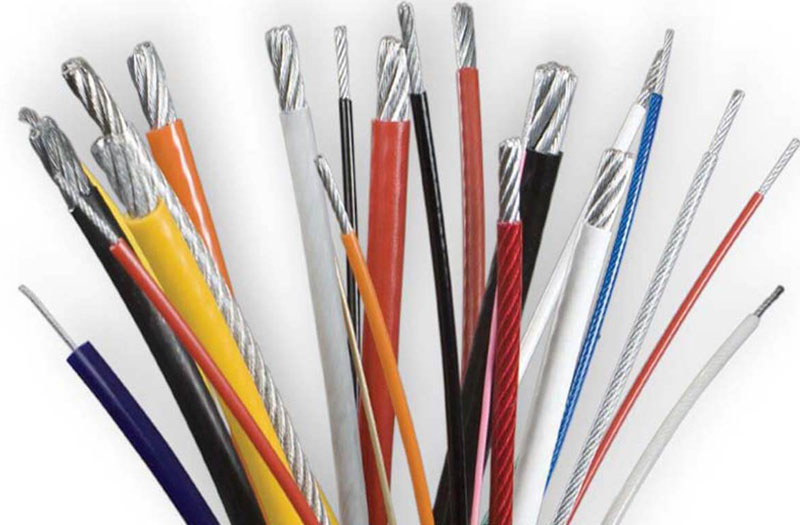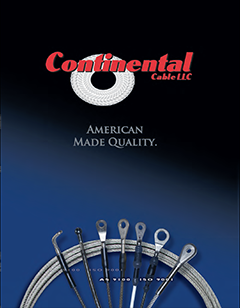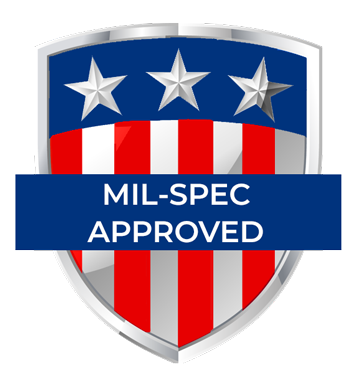Steel cable can be jacketed with a number of plastics, and in a variety of wall thicknesses. Commonly used plastics include PVC, Nylon, Polypropylene or Polyethylene, although other plastics can be used for special applications.
The plastics are offered in their natural finish or colored. U.V. inhibitors and flame retardant material can be added to the plastic before jacketing the cable.
- Strong and Flexible
- Chemical resistant
- Low and high temperature flexibility
- Flame resistant
- Colors for easy identification
Plastic-Coated Cable Comparison
Quick reference for selecting coatings for wire rope & control cables.
Notes: Stated cable diameter often includes the coating. Strip coating within the swage zone for mechanical end fittings. Choose coating for UV, abrasion, and temperature exposure of the application.




